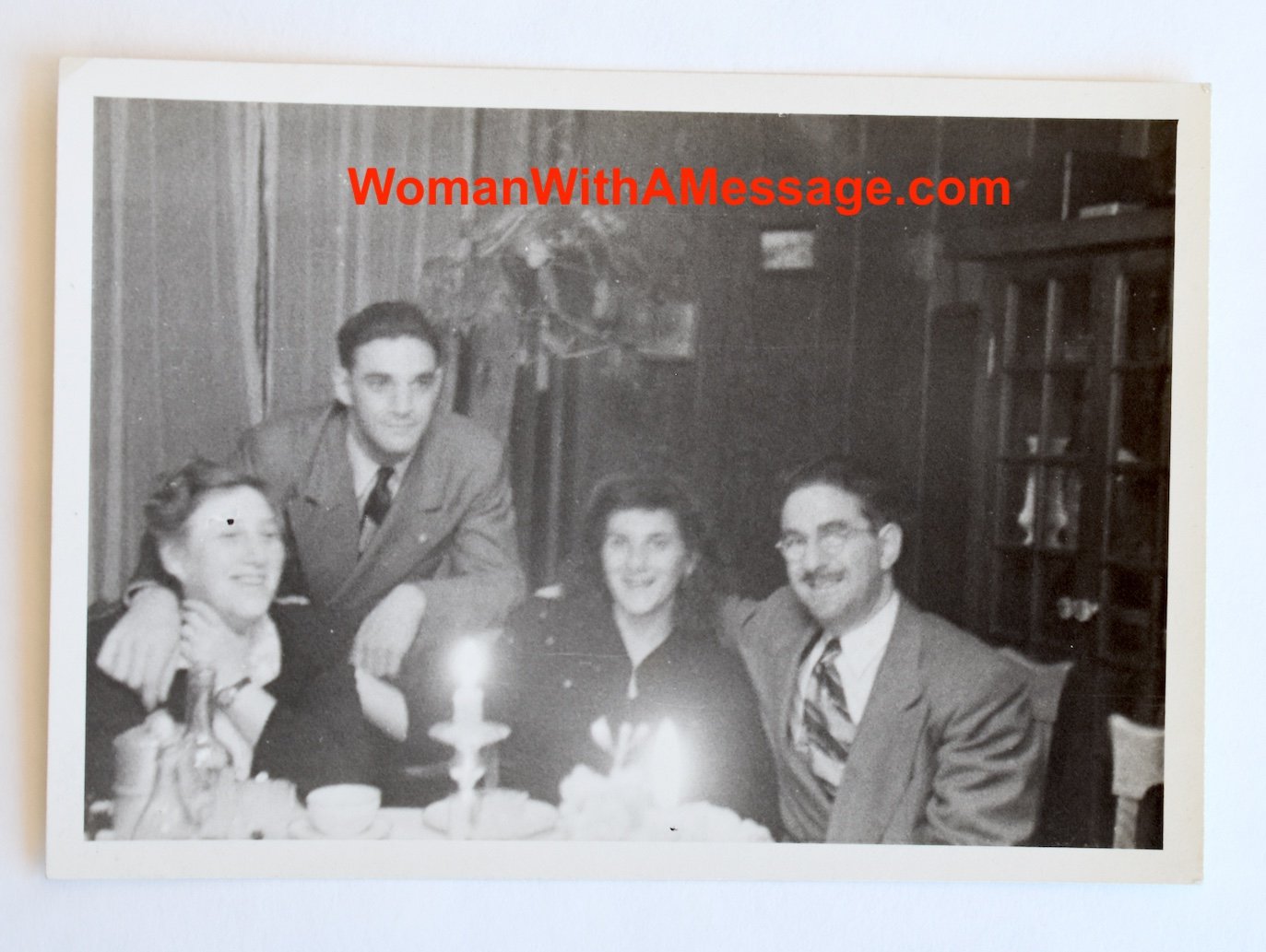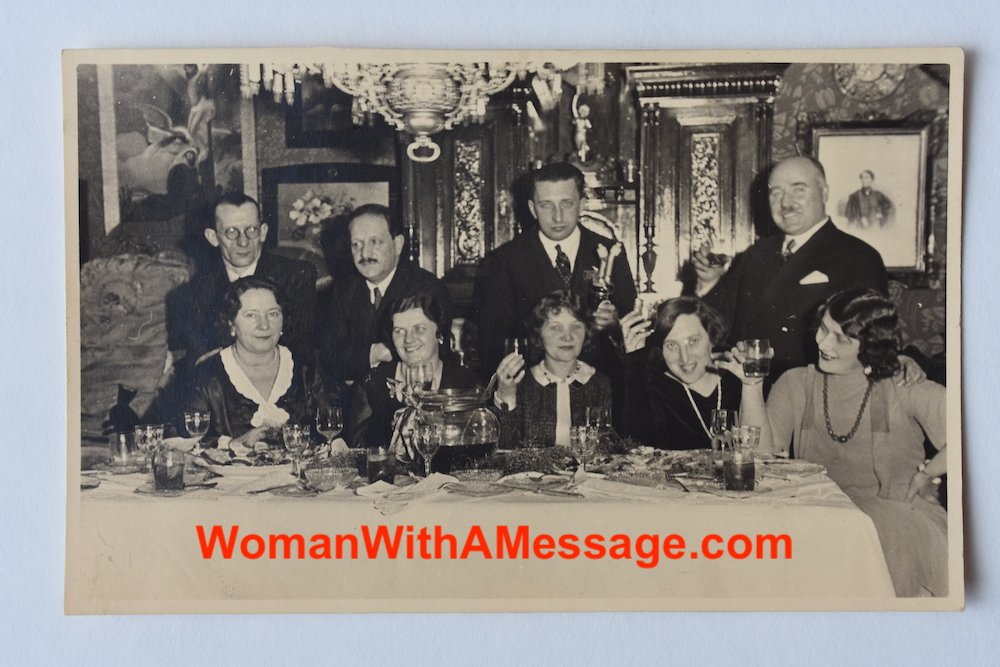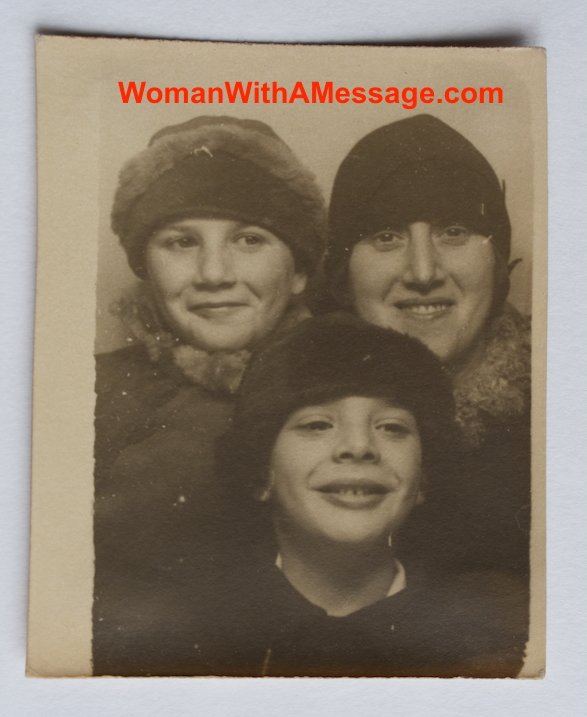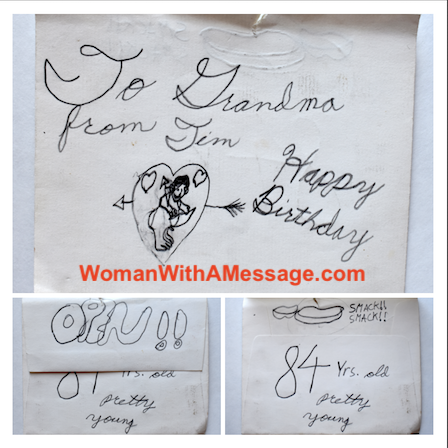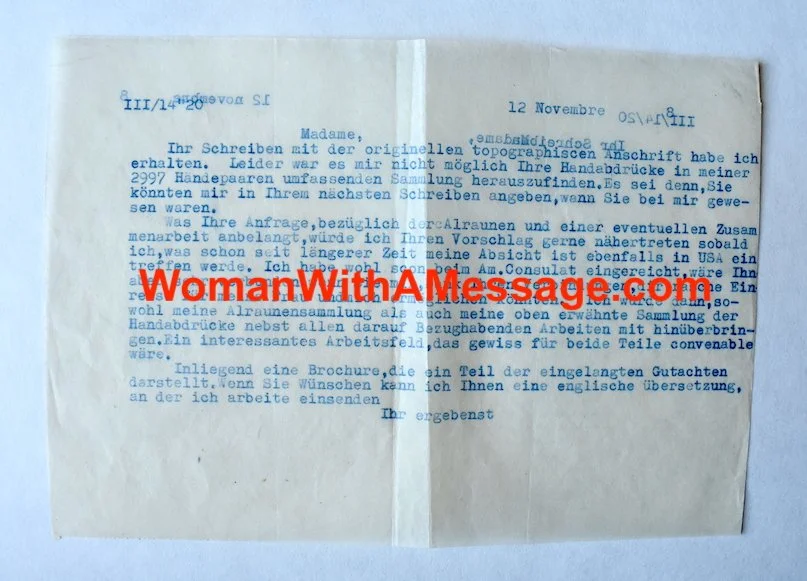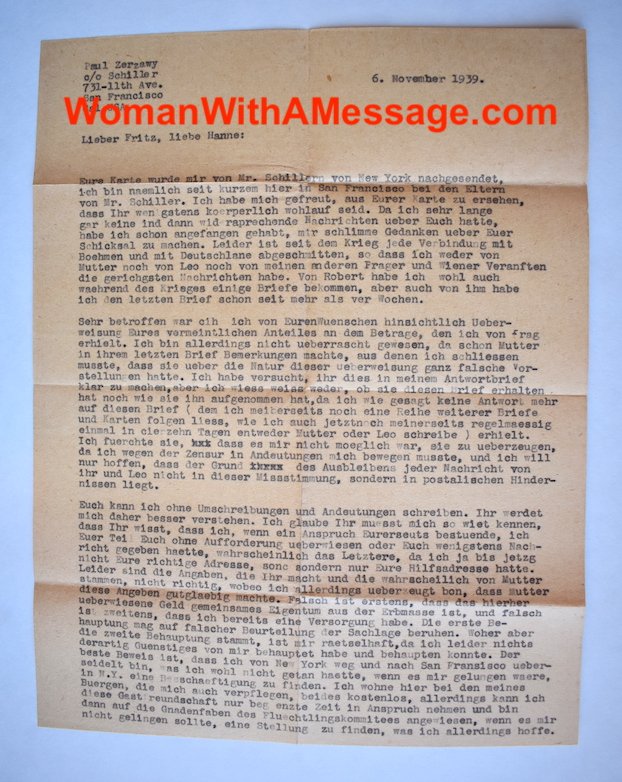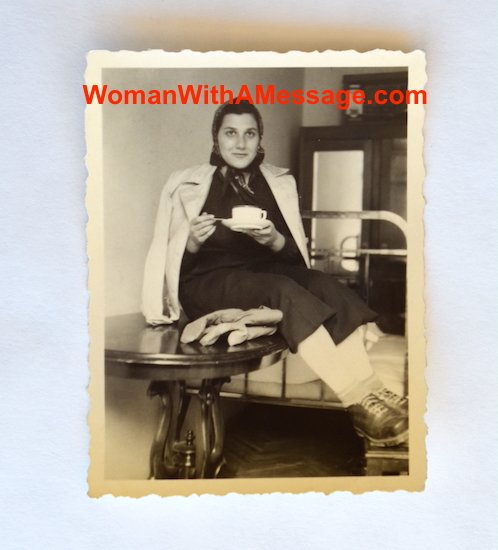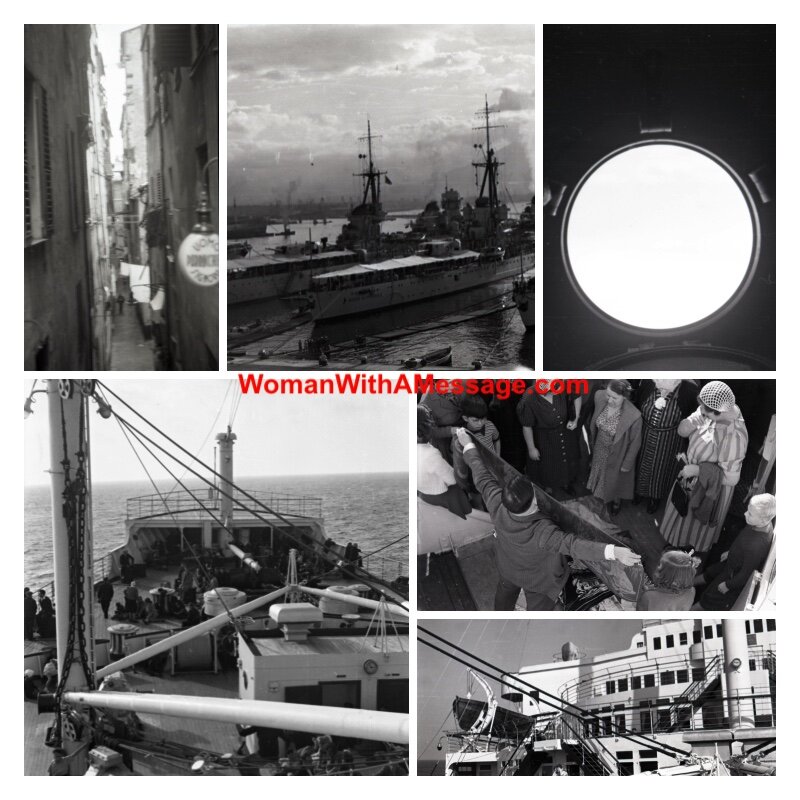Clipper # 54 Vienna, 11, October 1940
Children, my beloved children! If the sun were not shining in a summery way and the trees did not have such fresh green foliage, I would believe that it was Christmas because the day before yesterday was so full of pleasant surprises. Within 24 hours we got 3 letters from you, each one delighting us more than the last. The first thing I got was a letter from Hilda written on September 19. In quite a funny way she told about you and Paul and her letter really improved my mood. While I was still studying her letter (deciphering it is really quite a difficult course of study), the next mail arrived and your letter #4 from September 26th and I was absolutely swimming in bliss. I left everything else sitting where it was and I ran as fast as I could through torn up Marx Street to Papa at the shop. The next morning, letter #3 from September 19th appeared. I cannot imagine a happier person than I am right now. We laughed until we cried about Eva’s anecdote #1 and I had to think of the cannibalistic text of the cross-polka. It’s a dance which my older sisters learned which was en vogue then, among the dances that were typical in those days, might be described as the jitterbug that Harry loved so much. The text which the residents of Bilin put to this melody, and I believe there was only one, went something like this [in Bilin dialect]:
“Oh look there he comes,
He’s taking very big steps.
Here he comes again,
The drunken son-in-law
He finds a woman,
He cuts open her body
He takes her lung and liver out
And makes a great big beefsteak out of it.”
It’s a good thing that your lecturer on operations is not from Bilin, because he might possibly follow the instructions in that song. Maybe Paul still remembers the polka. By the way, talking about polka! Is Eva taking up her piano lessons again? Is she going to do the funeral marches for the hospital? Your hospital surely has its own cemetery, doesn’t it? The geographic anatomy knowledge of your fellow student we found very amusing, as did the washwomen anecdote. We found the geometric knowledge of Harry’s classmate equally amusing. Of course, I give my vote to Harry L. Lowell for board of education! With his usefulness in so many ways, he could be a porter, office-boy, newspaper boy, all that might be possible in the land of unlimited possibilities. A career worth of a Hearst, if not a president.
We have nothing interesting to tell you. We used to go to the anniversary observation point, the Hapsburg observation site, and all the observation points as they used to be. Today the points are coming to us [makes a pun in German - observation points/guards]. Now the guards come to us - the house guard, the block guard, and all the other kinds of guards and so we have all sorts of visits.
Our renters are quiet, well-brought up and educated people, with whom it’s pretty easy to live under one roof. We finally sort of agreed that I will do the cooking, my renter will wash the dishes, but drying them and keeping the kitchen in order will be my job.
Everything is okay here at the apartment, but everybody who comes here seems to bring all sorts of dirt into my apartment and there’s plenty of opportunity for that because the stairway has been painted recently. On one of the freshly painted walls, there was a giant modern eagle painted. It’s a good thing Harry wasn’t home anymore because they probably would have thought he did it. At his request, I looked up the old cashier from the movie house nearby. She has now become a nice young man [presumably a new cashier, now male]. But I now must tell you a funny story because we’re talking about the movie theater. Last time we were there, the following happened: the newsreel had just ended and instead of the movie we heard “come out, come out”. They turned the light on and the usher repeated “come on out, come on out, come on out, get out of here.” The one who was meant by this seemed not to move. First, we thought a Jewish boy had smuggled himself in there where he wasn’t allowed, but this didn’t seem to have been the case. The usher bellowed “come out, I said!” The culprit seemed not to pay any attention to this order. The usher lost patience with him and he decided to use brute force against him and yanked a young man out of one of the front rows by his arm. Now a few excitable 14-year old boys took up his cause and using their Vienna soccer jargon said “let him out, let him out I say!” And right in the middle of all of this kerfuffle a guard showed up. When the unruly boy saw the eye of the law, he quietly followed the keeper of order out. A few seconds later with a triumphant expression, he went into the audience. Admittance to this film was strictly forbidden to young people under the age of 16. The young hero of my story was however exactly 16 years and 2 days old. So, there was a lot of satisfaction among the 14-15 year old boys who had made some ruckus before. After this exciting scene (which was, by the way, the most amusing thing that happened that evening) the film did run but it got a late start.
Eva wanted to know why I sent a return envelope. Well Paul surely has to write to a lot of people and he probably doesn’t have much money. He shouldn’t be mad at me that I write a few lines to him to put in your letter. I’ve told him so often that I am happy when he adds a few lines to your letters when he doesn’t have time for more than that. I am leaving you now to deal with Paul and I leave you with many kisses. By the way, the number of kisses that you send seems to be affected by inflation. I don’t want to fall behind so I’m sending you 1,000,000,000,000,000 kisses.
Helen
Dear Paul! I was brought up too well to remind anyone of the old promise, but if anybody should should happen to know how much someone would like to be heard from maybe such a person might send a little bit more.
Hilda sent a vivid description of your family life and I was really happy to get that, especially the kindness that you experience in the Firestone house. Unfortunately I can’t answer this delightful letter today because I need quite a bit more time than I have to write back in English. Today I just don’t have time. I want to do that on Sunday and that’s my plan. Hilda must be a real treasure. Tillie and Bertha told me that they were sure I would like her if I knew her. I do, even though I don’t know her personally, and from what I can tell from letters, she seems to be a person with a lot of charm and it would be wonderful for me if you would tell me more about her and her husband. But please don’t forget to report back on everything you like to do. Also, if you’ve heard anything from Robert.
From Harry’s last letter, I understand that you had something to do with sending me money. Paul, I thank you but that’s really not okay with me because I know you work so hard to earn it and you don’t have much yourself. I hereby promise you, on my honor, that I will ask you for help if I need it, but at the moment I don’t.
I am so happy that the children are so well cared for and of course it is my wish and intention to be able to do this myself and I would like to show gratitude [in person] to the relatives. I hope that it’s still possible in this lifetime.
A snippet of your life and work would make me so happy and would be very interesting to me. Also, if you perhaps have heard something from old friends and also about your new friends. I want to know everything, I want to know details. That’s only a modest proposal, right? Otherwise, I don’t need anything except that I would hope that you would greet the Zentners, Schillers, Firestones, and Sol from me.
With warm greetings and kisses
Your
Helene
